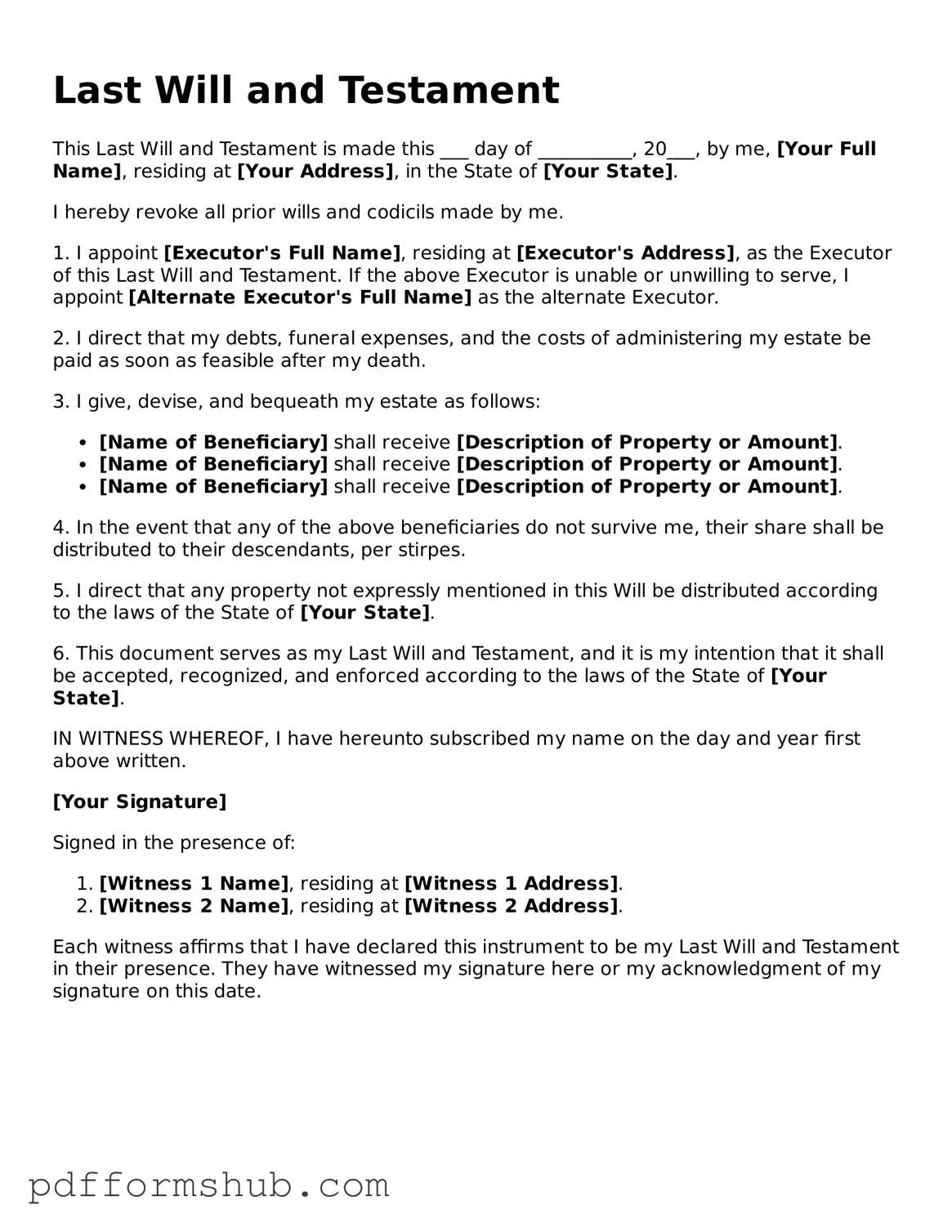Valid Last Will and Testament Form
A Last Will and Testament is a legal document that outlines how a person's assets and affairs should be handled after their death. This form allows individuals to express their final wishes regarding the distribution of property, guardianship of dependents, and other important matters. Understanding this document is crucial for ensuring that one's intentions are honored, so consider filling out the form by clicking the button below.
Customize Form

Valid Last Will and Testament Form
Customize Form

Customize Form
or
Free PDF Form
Short deadline? Complete this form now
Complete Last Will and Testament online without printing hassles.